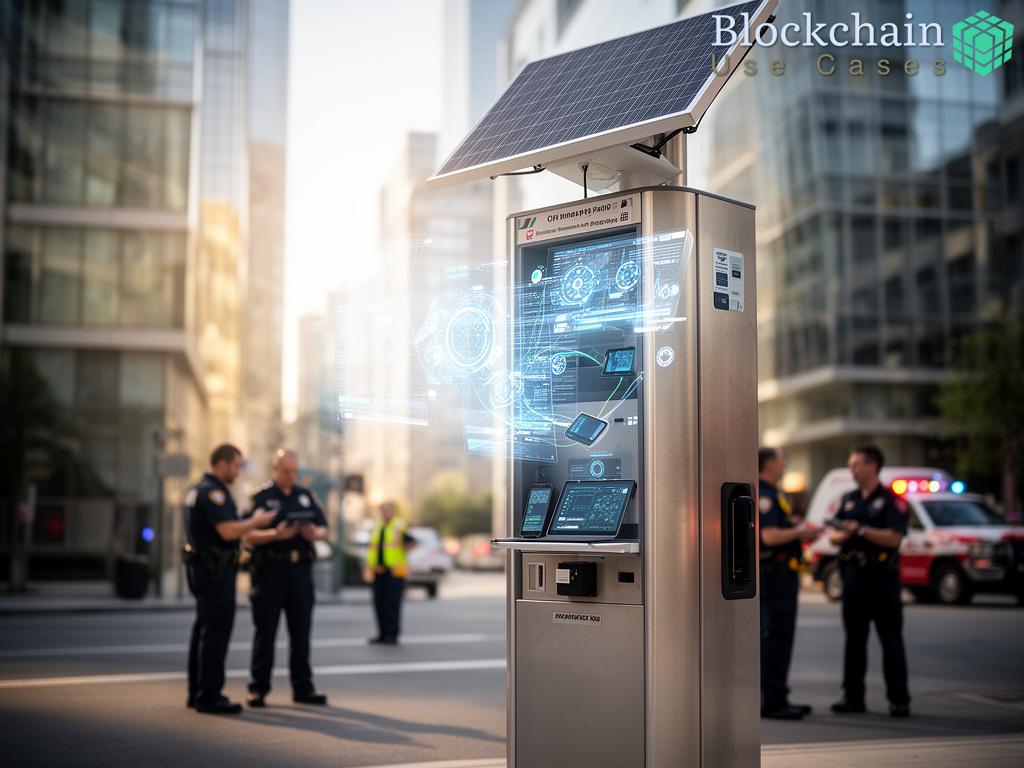Overview of Smart Contracts
Understanding Smart Contracts
Smart contracts are self-executing contracts with the terms of the agreement directly written into code. They are executed on decentralized platforms, most notably blockchain technology, which ensures transparency and security. This innovative approach to contract management can revolutionize various sectors, including public park and recreation facility reservations. By utilizing smart contracts, municipalities can streamline the reservation process, reduce administrative overhead, and enhance user trust.
The Mechanics of Smart Contracts
The functionality of smart contracts is predicated on a few key principles that distinguish them from traditional contracts. Their automated nature eliminates the need for intermediaries, allowing for direct interactions between parties. When a specific condition is met, the contract automatically executes, ensuring that actions are taken without delays or errors. This efficiency is particularly beneficial in managing reservations for public parks and recreational facilities, where demand can fluctuate rapidly.
Here is a comparison of traditional contracts and smart contracts:
| Aspect | Traditional Contracts | Smart Contracts |
|---|---|---|
| Execution | Manual and dependent on involved parties | Automatic and self-executing |
| Security | Vulnerable to fraud and manipulation | Secure due to blockchain technology |
| Cost | Higher costs due to intermediaries | Lower costs as intermediaries are eliminated |
| Transparency | Limited visibility | Fully transparent on the blockchain |
Benefits of Implementing Smart Contracts in Reservation Systems
The integration of smart contracts into public park and recreation facility reservation systems can bring forth numerous advantages:
- Efficiency: Automates the entire reservation process, reducing wait times.
- Cost-effectiveness: Minimizes administrative costs related to processing reservations.
- Enhanced Trust: Provides transparent and tamper-proof records of transactions, fostering user confidence.
- Accessibility: Facilitates easy access for users to reserve facilities at their convenience.
- Real-time Updates: Allows for immediate changes and notifications regarding reservations.
Benefits of Smart Contracts in Reservation Systems
The implementation of smart contracts in reservation systems for public parks and recreational facilities is more than just a technological upgrade; it’s a transformative shift that addresses many existing challenges. By leveraging blockchain technology, municipalities can modernize how reservations are managed, ensuring that both users and administrators benefit from increased efficiency and trust.
Streamlined Processes for Enhanced User Experience
One of the most notable advantages of smart contracts is their ability to significantly streamline the reservation process. Traditional methods often involve cumbersome paperwork and manual oversight, leading to delays and potential errors. With smart contracts, users can enjoy a seamless experience from start to finish. The automation of booking, payment, and confirmation processes minimizes human intervention, making it easier for users to secure their reservations.
Robust Security Features for Peace of Mind
In an era where data breaches and fraud are rampant, the security features of smart contracts offer a compelling reason for their adoption. Utilizing blockchain technology ensures that all transactions are recorded in an immutable ledger, making it nearly impossible for unauthorized alterations to occur. This level of security fosters a sense of trust among users, who can rest assured that their personal information is safe and that their bookings are legitimate.
Benefits Summary: A Clear Comparison
To encapsulate the advantages of smart contracts in reservation systems, the following table highlights key benefits compared to traditional methods:
| Aspect | Traditional Reservations | Smart Contract Reservations |
|---|---|---|
| Execution | Manual and often delayed | Immediate and automated |
| Security | Prone to errors and fraud | Highly secure and tamper-proof |
| Cost of Operation | Higher due to administrative fees | Lower with reduced overhead |
| User Trust | Variable and often low | High, due to transparency |
| Accessibility | Limited by operating hours | 24/7 access for users |
In conclusion, the benefits of integrating smart contracts into public park and recreation facility reservation systems are manifold. From enhancing user experience through streamlined processes to providing robust security and significant cost savings, the transition to a smart contract framework represents a forward-thinking approach that aligns with the demands of modern society.
Implementation Challenges and Solutions
The adoption of smart contracts for managing reservations in public parks and recreational facilities brings significant advantages, but it is not without its hurdles. Understanding these challenges is essential for municipalities and stakeholders aiming to transition smoothly to a more efficient reservation system. By recognizing potential obstacles and exploring viable solutions, decision-makers can facilitate a more effective implementation of smart contract technology.
Overcoming Technical Barriers
One of the primary challenges in implementing smart contracts is the technical complexity associated with blockchain systems. Many municipalities may lack the necessary technical expertise or resources to develop and maintain a robust smart contract infrastructure. To address this issue, local governments can partner with technology firms that specialize in blockchain solutions. By leveraging the expertise of these firms, municipalities can not only build a reliable framework but also ensure ongoing support and functionality.
Ensuring Regulatory Compliance
The legal landscape surrounding smart contracts is still evolving, which can create uncertainty regarding their enforceability and compliance with existing regulations. Municipalities must work closely with legal experts to navigate these complexities, ensuring that their smart contract frameworks adhere to local laws and regulations. Proactive engagement with regulatory bodies can also help in shaping favorable policies that support the use of blockchain technology in public sector applications.
Fostering User Acceptance and Understanding
Even with a solid technical foundation and compliance in place, the success of smart contracts ultimately hinges on user acceptance. Many potential users may still be unfamiliar with blockchain technology and smart contracts, leading to resistance or reluctance to adopt the new system. To mitigate this challenge, municipalities should undertake comprehensive outreach and education campaigns. Providing users with informative resources, hands-on training sessions, and clear demonstrations of the smart contract process can enhance understanding and build confidence in using the technology. Below is a list of key strategies to promote user acceptance:
- Educational Workshops: Host sessions to explain how smart contracts work and their benefits.
- Feedback Channels: Establish platforms for users to voice concerns and suggestions during the transition.
- Incentives: Consider offering discounts or other incentives for early adopters to encourage usage.
By taking these proactive measures, municipalities can address the implementation challenges associated with smart contracts in public park and recreation facility reservations, paving the way for a more efficient, transparent, and user-friendly system.
Case Studies of Successful Deployments
The transformative potential of smart contracts in public park and recreation facility reservation systems is not merely theoretical; it is being realized in various municipalities across the globe. These case studies illustrate how local governments have successfully integrated smart contracts to streamline their reservation processes, enhance user experience, and ensure operational efficiency. By examining these real-world examples, we can better understand the practical benefits and challenges associated with deploying this innovative technology.
Revolutionizing Reservations in California’s Parks
In California, a pioneering local government implemented a smart contract framework to manage reservations for its public parks. This initiative aimed to address long-standing issues related to double bookings and user dissatisfaction. By employing blockchain technology, the municipality facilitated a transparent and reliable reservation process. Users could access the system via a user-friendly mobile application, allowing them to book facilities like picnic areas and sports courts seamlessly. The smart contract automatically updated availability in real-time, eliminating any potential conflicts. The success of this deployment led to a significant increase in user engagement, with a 30% rise in reservations compared to the previous year.
Enhancing User Trust in New York City
New York City has also joined the ranks of municipalities embracing smart contracts for park reservations. Faced with a high volume of requests and a complex bureaucracy, city officials sought a solution that would foster user trust and simplify the reservation process. By launching a smart contract system, they offered a transparent platform where users could view all reservation details and payment information on the blockchain. This transparency mitigated concerns around fraud and errors, ultimately leading to increased trust among residents. Furthermore, the system’s automation allowed for instant confirmations and reminders, enhancing the overall user experience. Feedback from the community indicated that over 85% of users felt more confident in their reservations after the implementation of smart contracts.
These case studies underscore the remarkable impact of smart contracts in revolutionizing public park reservations. By showcasing tangible results, such as increased user engagement and enhanced trust, they highlight the potential for broader adoption in similar contexts. As municipalities continue to explore innovative technologies, the lessons learned from these successful deployments will undoubtedly inform future initiatives in public service.
Future Trends in Park Reservations
As we look to the future, the integration of smart contracts in public park and recreation facility reservation systems is poised to undergo significant transformations. The evolution of technology will not only enhance the efficiency of these systems but also redefine user interactions and expectations. With the rise of the Internet of Things (IoT) and advanced data analytics, the potential for smarter, more responsive reservation systems is becoming increasingly tangible.
Enhanced User Experiences through IoT Integration will play a crucial role in shaping the future of park reservations. By connecting smart devices throughout public parks, municipalities can gather real-time data on facility usage, environmental conditions, and user preferences. This data can be leveraged to create more personalized experiences for users. For instance, if a family regularly reserves a picnic area, the system could automatically suggest similar facilities based on their past usage or even offer tailored promotions during peak times. The seamless interaction between users and the reservation system will ultimately cultivate a more engaging and satisfying experience.
Data-Driven Decision Making represents another cutting-edge trend. With smart contracts, municipalities will have access to a wealth of analytics that can inform future investment and management strategies. By analyzing reservation patterns, local governments can identify high-demand facilities and adjust resource allocation accordingly. This could lead to the enhancement or expansion of specific park areas, ensuring that public spaces evolve in alignment with community needs. The ability to adapt and respond to user feedback in real-time will usher in a new era of park management, fostering community engagement and satisfaction.





